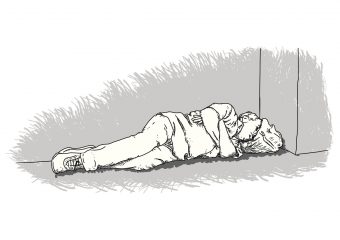Should housing benefit increase in line with UK rent prices?
Did you know that today is World Homeless Day? This is an awareness day that takes place around the world on 10 th October in order to change the lives of homeless people in their local communities.
As such, Crisis and The Joseph Rowntree Foundation are calling on the Government to invest in Local Housing Allowance (LHA), the housing benefit aspect of Universal Credit. This is due to the opinion poll published today, which shows 75% of respondents agree that housing benefit should increase if rents go up.
A survey was commissioned by the charities and conducted by Public First. Over 4,000 UK adults were involved, with 76% responding that housing benefit is a practical way for Government to stop people experiencing homelessness in the first place.
Housing benefit was originally designed in 2011 so that people on low incomes could afford the cheapest 30% of private rentals in their area. However, there has since been a lack of investment and a four-year freeze since 2016. The rates now fall woefully short of the true cost of renting, which continues to rise in many parts of the country.
Research published by Crisis earlier this year shows that housing benefit shortfalls have led to little to no affordable private housing in many areas across the UK. The charity believes that this is pushing thousands of individuals and families to the brink of homelessness.
Jon Sparkes, Chief Executive at Crisis, said: “A safe and stable home is fundamental to our dignity and humanity. But every day, we hear of people losing their homes as the constant pressure of rising living costs become impossible to bear.
“The Westminster Government has committed to reduce homelessness, but without addressing the root causes such as unaffordable rents, homelessness will continue to rise. Housing benefit is an important tool and could be the quickest and most effective way to prevent homelessness in the short term, but it is fundamentally flawed because of severe under investment. Ending homelessness is truly within our capabilities and government must act now to deliver on its promises.”
Darren Baxter, Housing Policy and Partnerships Manager at The Joseph Rowntree Foundation, said: “A home should be an anchor against being swept into poverty but for many families the cost of renting a home is adding an extra strain.
“It does not have to be this way. We can ensure housing costs do not push households into poverty if we invest in building the low cost rented homes and, in the short term, invest in housing benefit so that it reflects the real costs of renting.”





